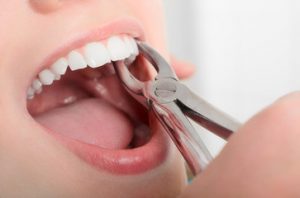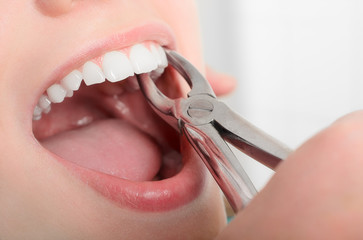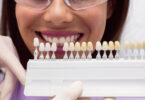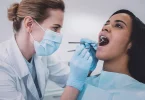At times, one is informed by a dentist that a tooth that is infected or damaged needs to be extracted. While it is no pleasing experience, there is a lot that should be done, both before and after tooth extraction. This reduces both pain and the risk of infection.
Before going ahead with tooth extraction, you should communicate to your dentist over any medications or supplements that you consume.
You must also make sure that you inform your dentist about any medical conditions that you suffer from, which make you more vulnerable to infection.
A few of them would include:
• Artificial or damaged valves
• An immune function which does not perform to the optimum
• A liver disorder such as cirrhosis
• Knee or hip replacement surgery that you have undergone
• Recurring bacterial endocarditis
Following a tooth extraction, your dentist will use gauze to pack the tooth socket. Biting down reduces bleeding, and your dentist will ask you to do the same. With self-absorbing stitches, the dentist will close the tooth site.

It is recommendable to keep some precautions in mind following a tooth extraction procedure:
1. For at least a day, keep your activity levels lower
2. In order to reduce bleeding and promote clot formation, bite on to gauze for around three hours. The soaked gauze must be replaced as and when required.
3. Apply ice over the site just following the tooth extraction, and then at 10-minute intervals.
4. If you prop your head up on pillows, it helps reduce bleeding. Avoid lying down without using pillows.
5. For the duration of 24 hrs do not rinse your mouth or spit forcefully. Avoid drinking from a straw.
6. Following 24 hrs, make a solution with 8 ounces of warm water and a ½ teaspoon of salt. Use it for rinsing the mouth.
7. Start out with softer foods such as soups, yoghurt and applesauce. As the extraction site starts healing, add solid foods to the diet slowly.
8. While brushing and flossing the teeth, avoid the site of tooth extraction.
9. Consume painkillers as guided by your dentist.
While a small degree of swelling pain and bleeding are expected following a tooth extraction procedure, you must get in touch with a dentist if you experience any of the following side effects:
• Out of the ordinary swelling pain and bleeding within 24 hrs of tooth extraction
• Swelling, redness or too much discharge from the site of extraction
• Chills, fevers or any other signs indicative of an infection
• Vomiting or nausea
• Chest pain, coughing, and short breath.
Tooth extraction site characteristically heals in a week or two. You can then resume with your regular routine for dental care.
In adulthood, undergoing a tooth extraction procedure sometimes comes across as a necessity. This is even while permanent teeth should ideally last a lifetime.
A tooth needs to be extracted if it is very badly damaged. The underlying cause may be infection or trauma. The following are the top underlying reasons why tooth extraction procedures become necessary:

A Crowded Mouth
There may be times wherein a dentist pulls out a tooth in order to bring the mouth in a position to undergo orthodontia. Orthodontia is a procedure undertaken to ensure proper alignment of the teeth. The procedure cannot be carried out if the teeth are too large for the mouth.
Similarly, if the tooth is too large for the mouth, a doctor may recommend pulling it out.
Infection
If damage to the tooth or infection spans right down to the pulp, it can be set right with a root canal therapy. The therapy involves extracting the damaged nerves and pulp within the tooth. The space created is filled with a filling. A crown is then cemented atop the tooth to render strength and restore the functionality of the tooth.
Root canal treatment of teeth price characteristically varies from one dentist to another. One can figure out root canal treatment cost by interacting with the clinic over the phone. One must ideally look beyond root canal charges because the procedure safeguards the tooth and allows one to use the tooth in the same way as earlier.
In the event that infection is too strong to be cured by antibiotics and root canal treatment, its extraction may be a feasible step.
Extraction may also be required if periodontal disease, a disorder in bone an gums surrounding the teeth loosens the tooth.
ALSO READ:
- How to Overcome Dental Anxiety: 5 Effective Steps That Work
- 5 Tips for Eating and Chewing Comfortably After a Filling
- 6 Best Home Remedies to Treat Wisdom Tooth Pain
- 7 Home Remedies For Toothache
- 5 Natural Remedies For Gum Disease
- 10 Signs You Need To Visit The Dentist
- 7 Options To Consider When You Have A Missing Tooth








